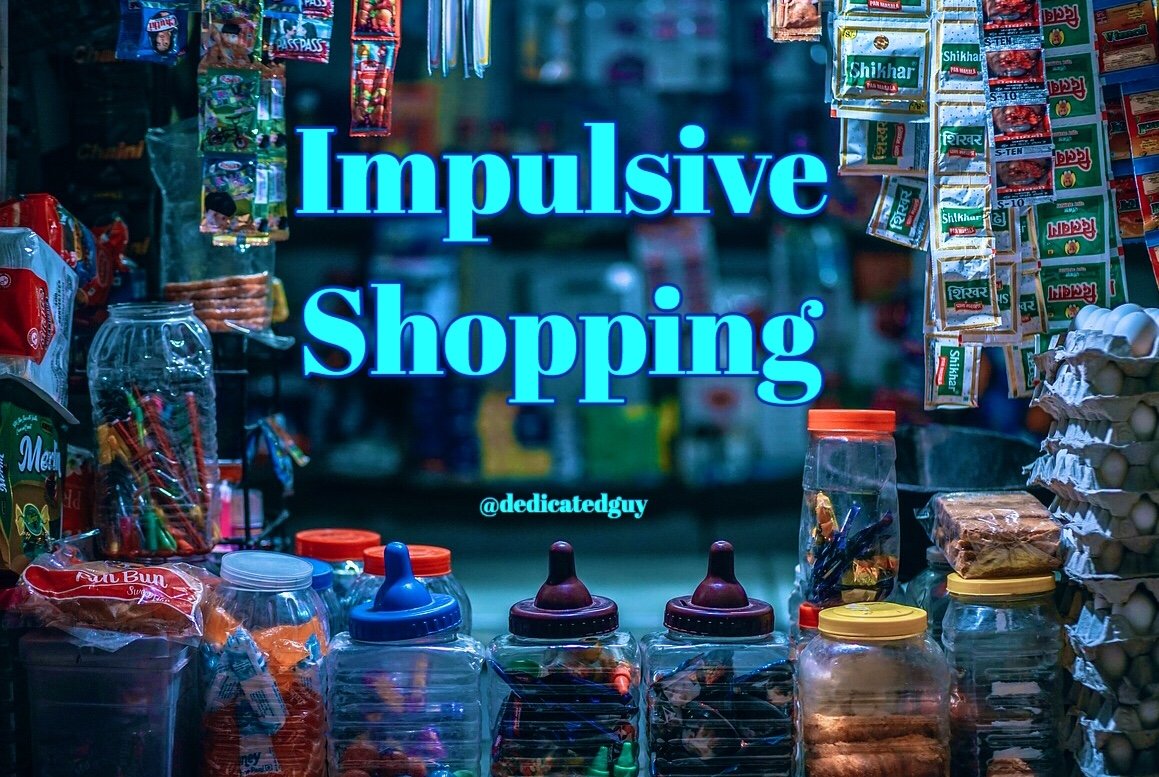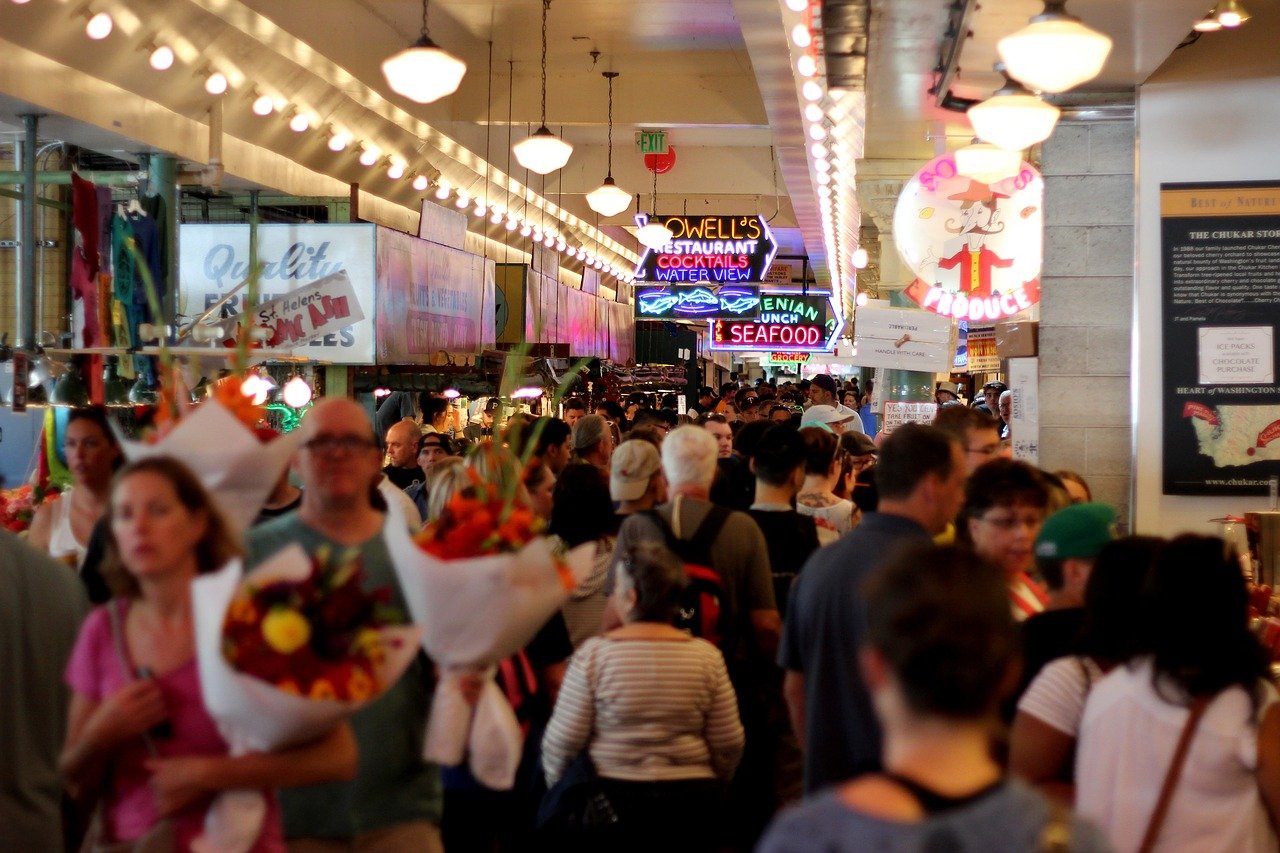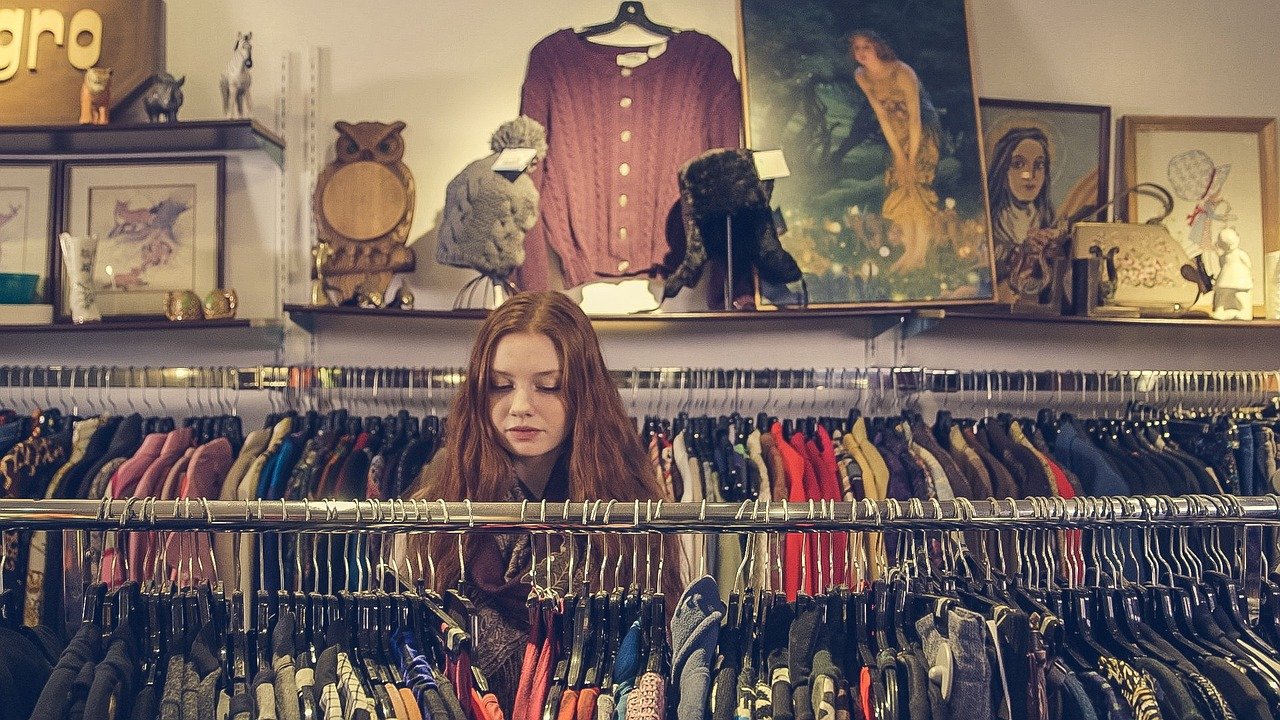

Shopping can be a fun experience for the majority of us, but for some people it is the expression of a disorder difficult to overcome. The excitement from days before the day of the actual shopping or the fact of not being able to stop even when there is not enough money. This is really a problem related to the mind but it is caused by our own society.
When we think of a compulsive buyer, we might think about the stereotypical woman full of bags just out of the mall. However, it can also affect men and children.
Psychologist Ian Zimmerman indicates that ”impulse buying is related to anxiety and unhappiness, and controlling it could help improve your psychological well-being”. | Source
We see examples of this all over the world, from the typical fights when Black Friday arrives, to people waiting for days outside Apple Stores to buy the new iPhone.
Check this video starting at 40s. It is like the Wild West inside a mall:

The need to spend money
Perhaps we have done the task of writing down on a piece of paper everything we needed for the grocery store: milk, eggs, bread, cheese, tomatoes among other items. But when we get home after making the purchase we have noticed that in the bags we also have a chocolate, some apples, some chips and other items we didn’t plan to buy. At what time we decided to buy those products?.

The truth is that purchases made without thinking can damage our diet, our economy and our self-esteem. First of all, the foods that we buy impulsively are usually the worst for our body. On the other hand, if we have debts and yet "we give ourselves a treat" like a pair of shoes or a jacket, it will be difficult for us to pay the bills, forming a problematic dynamic that can only get worse with time.
Behind this apparently inoffensive habit of buying every cute and fun thing we see, hides a big problem: our spending is caused by impulses and not by responsible decisions, it is guided by the looks of that leather jacket and not by a proper scale of needs, considering of course, the circumstances of every person are always different.
Stanley Loewen argues that ”over time your brain becomes used to the release of dopamine and you then need to get bigger and more regular 'hits' in order to achieve the same high. This also means that we are most likely to make purchases when we are feeling low (because dopamine is a happiness hormone) making these emotional and not logical decisions.” | Source

Is this a personal issue or rather a society’s issue?
If you pay attention to the layout of how some shops display the products, you will notice that sweets and chocolates are near the checkout and that healthier products, such as fruits and vegetables, are much further away. On the other hand, it is not a coincidence that people waiting in line when its time to pay is profitable for the store. During the time we wait, we have sweets next to us, looking all bright almost like saying "Buy me, I taste very good!" And of course, some people buy them out of impulse.

We are designed in order to accumulate things for various reasons. Gathering resources had an evolutionary advantage when we were evolving and would help us to attract partners and to better survive times when supplies were low. Thus we are genetically 'programmed' to want to collect and gather. | Source
If we add to that the publicity that encourages us to buy anything so we belong to a group or be socially "accepted", everything gets worse. The emotions we experience when we see a product are calculated in advance. A great example of this is the design of Apple products. Almost everyone feels good whey they are opening their new Apple gadget, and start to remove the screen protector.
Notice in this video, how the person makes sure to include the shot of him removing said plastic (40s)
The selection of our purchases are usually done automatically and made without us being fully aware, even products that are totally opposite to our tastes or habits can be acquired by us, only to end up accumulating dust in our homes.

Identifying the shopping impulses
It is a bit difficult to accept for any person they are "compulsive buyers", since we will always have an excuse for anything we do. Besides, when there is an issue we don’t want to accept, it is common for the person to block it in a way that realizing there is a problem becomes almost impossible, unless there is external help that somehow “forces” the person to recognize it.

To be able to realize (with total objectivity) that you are a buyer without control, think if at least on one opportunity you put your financial stability at risk. I think every person is able to realize if they have an issue like this or not, even if they don’t acknowledge it in public. No one knows us better than ourselves.
In case we feel we need a little more of control, a simple trick to avoid overspending is to get everything we need on a list when going shopping as mentioned before, and strictly buy only the items on the list. It would be even better to only go with enough cash to pay for those same items.
Some known characteristics of people with this condition are:
"Frequent spending sprees" Source: since they lack control, they are more susceptible than other people when it comes to avoiding being influenced by excellent marketing, and the capacity of saving money is practically non existing.
"Low self-esteem" Source: since buying new stuffs makes us feel happy for a little while, depressed people might tend to consume more, because of the way they feel when acquiring a new item. As mentioned before, they can become addicted to the dopamine release they get when buying.

"Relationship problems" Source: the same as with depression, when there are family or relationships problems, having a new gadget for example, can take our thoughts away from the problem, even if it is just for a little while.
"Financial difficulties" Source: since they lack control over most parts of their lives. Achieving a good financial possible is not possible unless they change. A good financial position can only be achieved with proper discipline, which is also key in developing self control. Hence, we could say most people suffering from impulse buying are undisciplined people. And of course, they suffer the consequences of that.

Conclusion
Each of us have made impulsive purchases from time to time. And doing it occasionally and sustainably (not risking our situation) is not something we should worry about.
Giving ourselves little rewards when we think we deserve them is healthy. That means, buying gifts for ourselves can actually be a good thing, especially if we know we have somehow earn that reward.

As long as we are covering our responsibilities, saving money on a constant basics and not drowning ourselves in debt, we should be able to buy non essential items from time to time without it being such a big of a deal.
Sustainability, that's the key word on this subject. Once we have embrace its meaning, and apply it to hour life, we would never have problems with overspending nor impulse buying.
Have you ever had any problems of this kind? If so, what were you buying irresponsibly and how did you overcome the issue?
Do you think these problems are increasing or decreasing in our society? Why?
References
psychologytoday – impulse buying
healthguidance
addiction
wsj – psychology behing impulse shopping
theguardian
Image sources

If these titles sound interesting to you, I assure you the articles will be even better!

Empty Nest Syndrome, an epidemic in Venezuela.
Today’s lesson: Why do we feel love? What is its origin?
Thoughts about reality and our unique perception of it.
The importance of Psychological Flexibility.
Let's talk about Philophobia, the fear of falling in love.
Thoughts about Natural Selection.
Let’s talk about emotional intelligence
Today's lesson: the importance of developing our empathy


